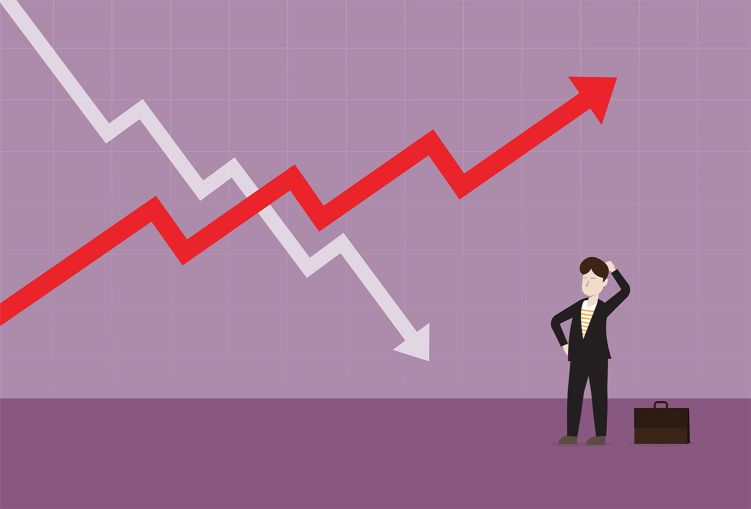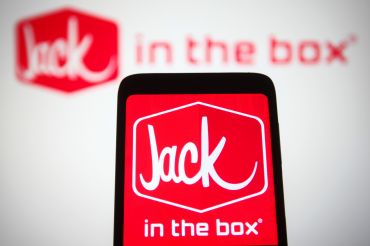Proptech and Real Estate: Are They Countercyclical?
Experts debate if there is a correlation between real estate tech and up or down real estate cycles
By Philip Russo February 6, 2024 9:00 am
reprints
As the U.S. economy improves, the question of where real estate resides in the economic cycle, and how that relates to proptech, is a matter of conjecture with no clear answer.
Proptech entrepreneurs and investors who offered their opinions on the subject at the start of 2024 are split as to whether their endeavors are in sync with, or countercyclical to, real estate cycles — or even if they are connected at all.
“I think it is definitely cyclical for sure,” said Ryan Masiello, co-founder and chief strategy officer at Manhattan-based global real estate CRM software platform VTS. “As the market suffers, proptech largely suffers. The reality of it is that unless you’re saving somebody money, or creating a product with completely new and unique value props in this market, nobody really has the cash or the resources, candidly, to spend time with a lot of these companies.”
The equation may be changing as the office market starts to gain some traction, though, Masiello said.
“There is positive momentum in the office market,” he said. “It’s obviously more pronounced in some markets than others. But at the end of the day, you know that is not going to be helpful to everyone. So, while we say a down market is a good market for VTS, the reality of it is we still have a long way to go to recover in terms of getting back to the point of equilibrium where landlords actually start to have real stability.”
However, even the real estate cycle’s downside presents some upside for proptech, Masiello added. The idea for VTS came about after the 2008 Global Financial Crisis, when the company’s founders realized the brutal market offered them an opening to create a platform to address a number of serious issues facing landlords at the time.
“A down market presents an opportunity where an audience that maybe wasn’t so keen to listen before is really willing to listen now,” said Masiello. “And if your story is the one that is actually true — we have unique data that’s going to help you think about investing or leasing differently — then I think people are more than willing to take a leap of faith.
“And the same on the cost consolidation side. When leasing is good and people are making a lot of money, you don’t really have that pressure to cut costs. In this market, if you really are providing a service that truly enables people to consolidate systems specifically to cut costs, then I think people are willing to go to bat and find the budget internally. But there’s also a lot more scrutiny on that, because there are a lot of products out there.”
Proptech’s broad array of companies and services makes it difficult to pin its fortunes to real estate’s cycles on the macro level, said Michael Broder, CEO at Rckrbx, a data mining platform for multifamily real estate assets across the ownership life cycle.
“I think you have to look at it more on the micro level,” said Broder. “Things that are more deployed technologies — perhaps in a building that may get through efficiencies or a better resident experience — things of that nature may be more cyclical, because they are completely tied to the reality of the market.
“And, today, you have transactions that are depressed in terms of the volume and velocity of those transactions, and new development starts are perhaps slowed given the current economic constraints. Things of that nature probably are more broadly affected by the current market conditions, whereas things that may make people have greater confidence in their decision-making, things that may give them greater insight in terms of where unmet needs are in the market and where that opportunity really lies, are probably countercyclical.”
As a former consultant, Broder said he likes to remind people that in down economies the most important thing that one can have is better data to make better-informed decisions when the stakes are higher. “There’s greater risk,” he explained, “but if you understand things in a more actionable way, you can obviously feel confident about your decision-making capability.”
For RCKRBX in particular, Broder sees rays of growth even as multifamily faces a gloomy high interest rate horizon.
“We are in a bit of a unique field within the larger proptech environment in that we deliver some very powerful predictive analytics and data models for developers or investors to more accurately forecast the performance of an asset on market,” said Broder. “This gets back to the idea that in a down economy or an austere financial environment the ability to actually stress-test assumptions and understand quantifiably how that product will ultimately perform is a critical set of information in a tougher financial economy.”
Broder said that’s a reason for his platform’s viability. “And I suspect that as things begin to loosen and activity begins to pick up, particularly given the amount of distressed assets on the commercial office side that may ultimately be repositioned or converted to multifamily assets, I think there’s going to be a pretty significant transaction spree later this year,” he added. “We are doing everything that we can to be ready for that onboarding of all those opportunities.”
Proptech’s connection or lack thereof to multifamily cycles depends largely on geographical markets, said Lindsay Martinez, co-founder and CEO of Tourus, a rental analytics tool for residential multifamily owners and operators.
“I almost think it’s a little irrelevant, because if we look on the multifamily residential side the performance of proptech is going to be influenced by a lot of factors,” said Martinez. “And I don’t think that it’s going to universally be better or worse during up or down phases. Real estate and proptech are connected, but they’re not so interdependent. The impact of market conditions on proptech companies is really going to depend on the specific market and what supply and demand looks like in that specific market.”
Yet another viewpoint comes from Philip Kanfer, founder and CEO of Market Lane Advisors, a Manhattan-based proptech advisory startup that works with real estate owners, operators and developers on 50 million square feet of office and more than 12,000 apartments.
“I do think that they’re pretty positively correlated,” Kanfer said of proptech and real estate cycles. “From what I’m seeing, the real estate world needs proptech and innovation when times are good and not as good. I think owners should always be thinking about how they can innovate within their businesses in good times. They need to keep up with their peers.
“In trickier times, their focus is on much more pressing needs than proptech, but it’s platform dependent. Many owners I spoke to across the country, especially if they only own office, have unfortunately had to downsize. But what they’ve been looking into is, ‘If I had to cut my team from six to three, what technology can I replace them with that allows me to not then increase my team to five, six or even seven after that?’ That’s where I’m seeing eyebrows being raised on the owner side.”
Market Lane’s proptech advisory capability is in demand due to the still-struggling office and multifamily sectors, said Kanfer.
“For my business, I’m seeing a strong demand, because owners don’t have the time, bandwidth or even especially the expertise to go through the myriad proptech opportunities that are out there and make informed decisions,” he said. “I was just on the phone with an asset manager this morning who said, ‘I know how to lead and I know how to asset manage, but when it comes to making technology decisions, I don’t know as much as I do about my core business.’ ”
Beyond the U.S. real estate market, opinions on the cyclical relationship between proptech and real estate are also somewhat opaque.
“I don’t think the proptech market is at all cyclical,” said James Dearsley, CEO for Europe, Middle East and Africa at Verv, a London-based proptech startup focused on sustainability. “I think the real estate market obviously is, when talking about deal size, valuations, and deals going through.”
Dearsley compared proptech to the Gartner Hype Cycle, where markets go through a massive burst of branding activity and then decline. In this manner, proptech maxed out in the global marketplace in 2017, and came off its peak in 2020 or 2021. It wasn’t because of the pandemic, though, he said.
“What we’re now seeing is a transition and morph from core property technology to more nuanced technology: climate tech, energy tech, sustainability tech, contech, and planning technology,” Dearsley said. “We’re getting into much more micro sectors, because I think proptech is seen as very generic. Technology is not the answer to the digital transformation of the real estate industry, because it’s much more broad than that. Technology is purely one single aspect of that change.”
Now proptech companies are becoming a lot more specific about what they are, he added. The umbrella term proptech still exists, but its verticals are much more specific, making the sector less cyclical. “It goes through exactly the same hype cycle as everything else. And entrepreneurs are now getting a little bit more savvy that they have to be labeled correctly to make it more pertinent to their buyers.”
However, over Dearsley’s last 18 months of traveling to various real estate markets globally to discuss proptech, he has seen a change that he said, “may in the next five years completely turn my opinion on its head about whether something is cyclical or not.
“For the first time in over a decade, I’ve seen the language that the technologists speak and the language that founders and real estate leaders speak is actually on the same page,” Dearsley said. “Before that, technologists spoke a different language to real estate founders when it comes to the [innovation] drivers, which, by the way, is not just sustainability, but also affordability and productivity. They are finally aligned with where they need to get to. That’s why I am incredibly bullish about the next five years in the affordability area, the productivity area, and the sustainability area, which are the three core drivers of change. For once, everyone seems to be on the same page.”
Philip Russo can be reached at prusso@commercialobserver.com.


